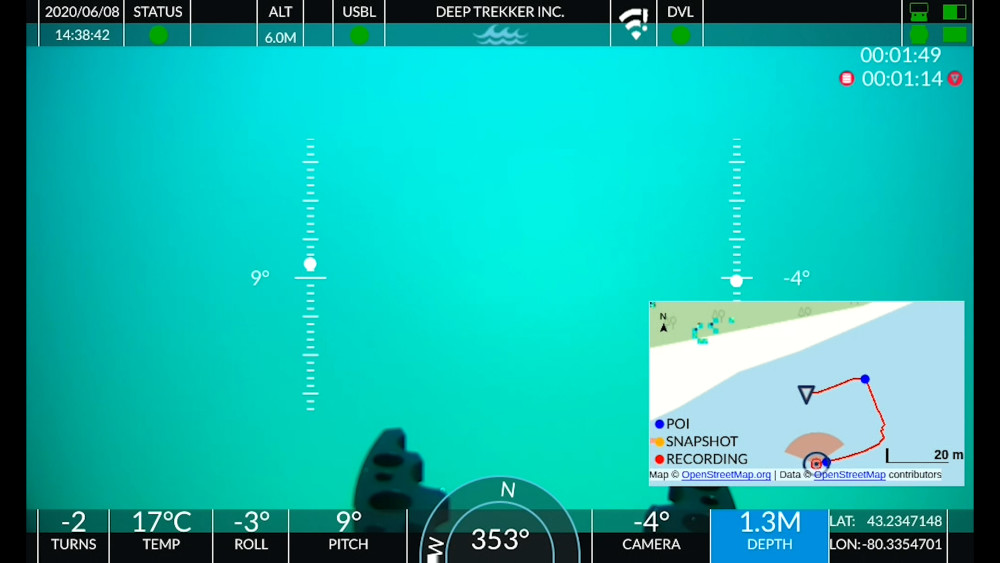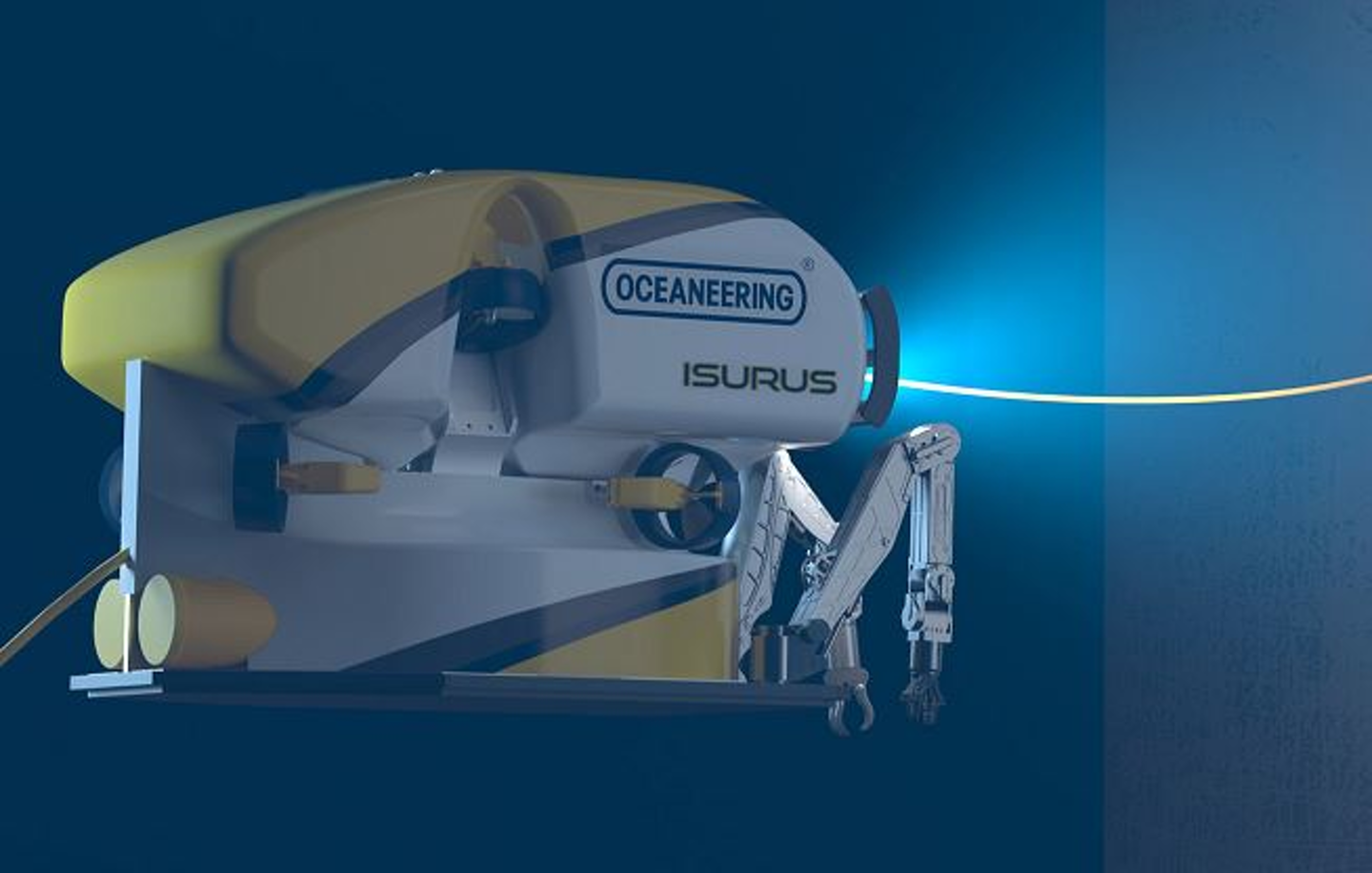Home › Forums › ROV › ROV Rookie Corner › Is a technical background required to enter the ROV industry
- This topic has 19 replies, 6 voices, and was last updated 16 years, 5 months ago by
Scott Beveridge.
-
AuthorPosts
-
October 20, 2008 at 8:34 am #19801
James McLauchlan
ParticipantThe above post has been split off another topic as it posed a question in it’s own right that I feel should be debated as a separate topic.
Question where does it actually state that you require a technical background to start in the ROV game.
AS IMCA is only a guide line which most of these schools are working to.It probably doesn’t state that ‘you require a technical background to start in the ROV game’ but without that type of background a person is looking at the wrong profession. Lets face it… it’s a technical job so requires people with technical backgrounds.
It’s not something you do a course on and the next week head offshore. I suspect that is why a number of people having completed ROV training courses are struggling to get into the system. The employers can see that their background is not relevant to the job. If I was an employer I would not consider someone without some kind of technical/apprenticeship or (in lieu of that) time served experience. A person with only an ROV school certificate under their belt is not what the industry needs. There are plenty of the type of people we require around the world but if we are not attracting the right ones with the required qualifications/experience then conditions need to improve to do so.
I believe the solution is not more ROV training schools.
October 20, 2008 at 8:36 am #1888bt
ParticipantQuestion where does it actually state that you require a technical background to start in the ROV game.
AS IMCA is only a guide line which most of these schools are working to.October 20, 2008 at 9:29 am #19802Ray Shields
ParticipantIt doesn’t state that you require a pulse either however that would be an advantage.
ROVs are machines, they have electrics, hydraulics, mechancis in various shapes, sizes, complexity and amount. You need enough technical knowledge and experience in order to work on them.
As you said, IMCA is a GUIDELINE, not a be all and end all. If you satisfy the guidelines of IMCA you are ON YOUR WAY to be coming an ROV Pilot Tech – you are NOT a Pilot Tech at that stage.
October 20, 2008 at 10:45 am #19803bt
Participanti agree ray
But that was not the question.
So training schools are doing nothing wrong by offering these courses.
(Just upsetting employees rather than employers).October 20, 2008 at 11:01 am #19804Andy Shiers
ParticipantIt’s your cash , If you want to spend it 8)
Just don’t get upset when the job dosen’t land on your doorstep !
Then ask……………………… Why is it hard to ‘Give s a job’ !
The explaintives are on here if you want the reasonOctober 20, 2008 at 11:37 am #19805Ray Shields
Participanti agree ray
But that was not the question.
So training schools are doing nothing wrong by offering these courses.
(Just upsetting employees rather than employers).Most training schools say that they check peoples backgrounds and will only let them on the course if they have a suitable technical background.
Most of us have also met people who don’t know one end of a screwdriver from the other and they were STILL accepted by the training school and put through the course!
I had a look into this and in fact IMCA DO state the requirement for academic or technical background (looking at PT2 grade). IMCA C002 states relevant Academic qualifications and/or Industrial experience as does IMCA R005, page 23 (of the pdf at least).
If all training schools properly vetted pupils that they took on then there would be much less of a problem. However, some are better than others.
October 20, 2008 at 11:52 am #19806ROVRatt
ParticipantThis was posted by Rovned in another thread but I think it is also relevant here:
What are the requirements for enrolement on this course? I’d really like to hope that technical qualifications are finally being considered.
I’m constantly amazed at non- technical people paying huge amounts of money for training courses and hoping to walk into jobs in ROV. These schools are robbing you, making promises of work that they know don’t exist.
To put it into perspective- would you do a basic home car mechanics at your local college (around a year with evening classes) and expect an immediate start at an Aston Martin garage? Your average work-class sytem costs upwards of £2.5 million these days.
This rant has come as a result of going onto too many jobs with a non-technical trainee and a non -technical supposed sub-eng with two years experience (but he’s a nice lad and keen, therefore he’s been good at fetching/ carrying/ filling/ draining but has no idea about fault finding) and having to do everything myself.
If you’re not technical either do an apprenticeship or spend a couple of years at college. There’s no way a couple of weeks at these schools can give you enough background in either hydraulicsl/ electronics to be of any use. Save your money.
I recently went onto a job where no-one on the crew had more than 18 months ROV experience but they were all time-served techs. It was fantastic. Ops were a bit difficult at times but by far the easiest trip I’ve had for a long time. As soon as the vehicles hit deck they were on the case.
This may sound harsh but it’s better to find this out now while your money is still in the bank. Too many of the technical lads are coming through the courses with stories of mates who paid the same money but had no technical background and haven’t worked yet.
Do some research before you part with your money. The best resource is here. Check through the previous posts, and good luck.
October 20, 2008 at 12:45 pm #19807Andy Shiers
ParticipantNeed I say more
October 20, 2008 at 10:22 pm #19808bt
Participantno you don`t.
Looks like there is just a guide line.
looks like a lot more on job training.
Mind you thats all part of the Job.October 21, 2008 at 5:30 am #19809Scott Beveridge
ParticipantLike the (literally) hundreds of similar questions on this website, yes, it would behoove you to have some sort of technical background before you go for an interview / send out your CV. Take a couple of days to read through this website. Start with the FAQ’s on the left sidebar.
James, take note… no flippancy today!!
October 21, 2008 at 9:02 am #19810James McLauchlan
ParticipantJames, take note… no flippancy today!!
October 21, 2008 at 11:49 am #19811ROVRatt
Participantbt Wrote:
no you don`t.
Looks like there is just a guide line.
looks like a lot more on job training.
Mind you thats all part of the Job.Looks like? Tell me, are you working in ROV?
October 21, 2008 at 11:53 am #19812bt
ParticipantThanks but i`m not looking for a job.
Just asking the question as it sounds like a strict rule when you read info on this web site.
Although why should the ROV industry expect to get trained technicians / people with a high technical background rather than training people from scratch ??
I am aware some company`s do, but very few.
The cost of the equipment shouldn`t come into it.October 22, 2008 at 9:17 am #19813James McLauchlan
ParticipantIn my experience offshore operators will not take non-technical people and train them up through the basics to a technical level. It’s a two year investment that they won’t swallow. It’s an issue that is unlikely to be addressed by the companies themselves.
So, with the above in mind, what I will stand by is that you need a technical background & prior relevant training to enter this game. If you do not have that in Mechanical or Electronic form then look for another vocation.
I don’t care how much someone wants to get into ROV if they need teaching offshore what a screwdriver is, or how to wire up a plug for a domestic 110/220 VAC supply then it will be years before they are of any use technically on the system in an offshore environment.
Like any industry we need to attract those that are already prepared for this type of technical environment. There are plenty of people out there with technical training but to attract them pay and conditions need to be improved. It’s no wonder that people with no prior technical training/background are interested in the job when they see the numbers. That’s most likely because they could not earn that kind of money with their lack of qualifications anywhere else in the world.
October 22, 2008 at 10:56 am #19814Ray Shields
ParticipantAlthough why should the ROV industry expect to get trained technicians / people with a high technical background rather than training people from scratch ??
I am aware some company`s do, but very few.
The cost of the equipment shouldn`t come into it.Because they don’t need to.
There are enough technically qualified/trained technical people out there applying for jobs in ROVs that the companies do not need to take on the expense/trouble of teaching someone to be a technician.
-
AuthorPosts
- You must be logged in to reply to this topic.







